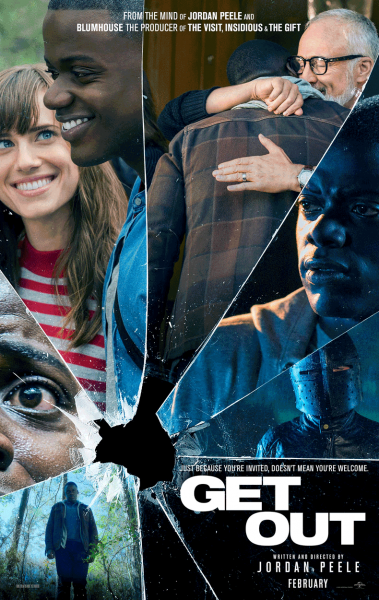 By Dom Daugherty
By Dom Daugherty
Contributor
Jordan Peele’s directorial debut with his new movie, “Get Out”, has been an absolute success in delivering a thrilling dramatization of the very real and covert racism that thrives today in even the most liberal places.
The movie dives right into the provocative with the opening sequence which has an African-American man (Lakeith Stanfield) wandering lost in an upper middle class suburban area looking for a friends house. At some point, a white sports car pulls up next to him and begins to stalk him as he walks down the road. Eventually a masked assailant emerges and the man is kidnapped and dragged back to the car.
The scene seemed eerily reminiscent of so many videos we’ve seen of police violence within black communities and undoubtedly sets the tone for what is a racially charged thriller that leaves you on the edge of your seat in suspense.
The movie stars Rose Armitage (played by Allison Williams of the HBO series Girls) and her photographer boyfriend Chris (played by Daniel Kaluuya, a British national of Ugandan descent) who are getting ready to embark on a trip to meet Rose’s parents.
The inherent uneasiness Chris feels over dating a white woman becomes clear almost immediately when he asks Rose if she told her parents he was black, revealing an awareness of the negative feelings many white parents have their daughter’s black boyfriends. She assures him that, despite her never telling them she’s dating a black guy, her parents wouldn’t mind; going so far as to say her dad would have voted for Obama a third term.
His unease continues even after meeting her parents, brain surgeon Dean (Bradley Whitford) and his hypnotherapist wife Missy (Catherine Keener) who don’t even bat an eye at the color of his skin. Peele does a great job with this scene by choosing to shoot it in a single shot from afar, capturing the subtle body language of the characters somewhat awkward introduction.
You can sense a tinge of suspicion from Chris over the eagerness of the Armitages to make him feel comfortable, but it seems to dissipate as Dean shows him around the home. The house looks like a kind of Upstate New York plantation, complete with a black maid and groundskeeper who have the social ability of a stuffed animal. It becomes clear early on that there is something sinister under the surface of this seemingly-perfect liberal family.
So many questions arise from the tour of the home, and the initial meeting of Chris, Dean and Missy. Why is the basement door locked? Why do they seem so eager about Chris’s arrival? Why do they need a groundskeeper? Why does the maid seem like she’s on auto pilot?
All these questions are answered, when the main plot is revealed as the movie enters its second act; a rollercoaster of emotion, suspense, and plot twists, which Peele so artfully pulls you into. The way Peele so effortlessly paces the film with it’s perfectly timed comedic moments tucked between the most thrilling is an impressive feat for anyone, let alone a sketch comedian from Comedy Central.
In it’s entirety, this movie is so successful because it delivers a fresh interesting take (something Hollywood lacks these days), on old, often ignored issues many minorities face every day by doing things like bringing everyone in on what it’s like to be afraid to walk alone at night in an affluent neighborhood. This movie is an absolute win for Jordan Peele, and anyone who understands the subtle signs of racism that typically exists beneath the surface.


